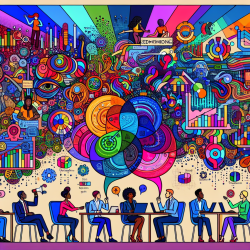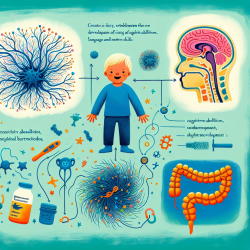As practitioners in the field of speech-language pathology, it is essential to base our decisions on data-driven insights. A recent study published in the Canadian Journal of Speech-Language Pathology and Audiology titled "Évaluation de neuf synthèses vocales françaises basée sur l'intelligibilité et l'appréciation" provides valuable information on the intelligibility and appreciation of various French synthesized voices. The findings from this study can significantly impact our approach to recommending communication systems for children with severe language disorders.
The study evaluated nine French synthesized voices to determine their intelligibility and appreciation across different age groups. The results indicated that certain synthesized voices are as intelligible as human voices, especially when words are presented in context. Specifically, two synthesized voices were found to be highly intelligible (>84%) in isolated word conditions, and five synthesized voices showed high intelligibility (>92%) in contextual word conditions. This suggests that the context in which words are presented can significantly enhance the intelligibility of synthesized voices.
Here are some key takeaways for practitioners:
- Context Matters: Synthesized voices show higher intelligibility when words are presented in context rather than in isolation. This is particularly important when selecting voice synthesis systems for children, as contextual cues can aid in better understanding.
- Voice Selection: Not all synthesized voices are created equal. Voices like Virginie and Louise were found to be as intelligible as human voices in both isolated and contextual word conditions. These voices could be prioritized when recommending communication systems.
- Appreciation Correlates with Intelligibility: The study found a positive correlation between the intelligibility of synthesized voices and their appreciation by listeners. Voices that were more intelligible were also rated higher in terms of listener appreciation. This means that selecting more intelligible voices can lead to better acceptance and satisfaction from the users.
For practitioners, these findings emphasize the importance of selecting synthesized voices that not only meet intelligibility criteria but are also appreciated by users. This dual focus can enhance communication outcomes for children with severe language disorders, making their interactions more effective and pleasant.
To read the original research paper, please follow this link: Évaluation de neuf synthèses vocales françaises basée sur l'intelligibilité et l'appréciation










